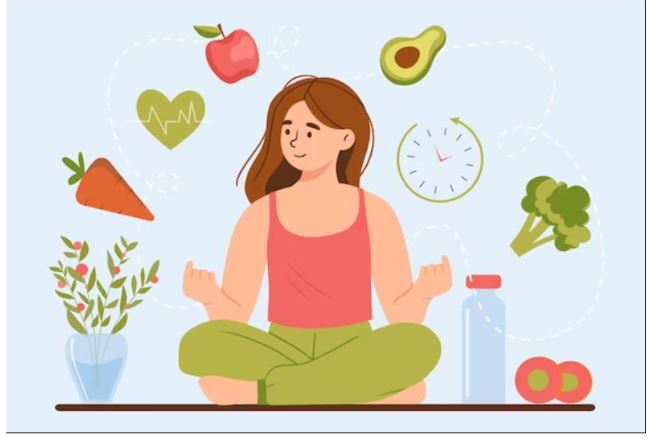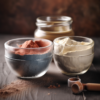As the rainy season rolls in, bringing with it the soothing sound of raindrops, cozy evenings and leafy greenery, it also brings a higher risk of common illnesses. But worry not! We’ve got your back with some handy tips to strengthen your immune system. In this article, we’ll explore a few simple practices that can help you flow through the rainy season without dropping target to those annoying sniffles and coughs. So, grab a cup of hot tea, cozy up and dive into the world of immunity-building for a healthier and happier rainy season!
Eat a balanced diet:
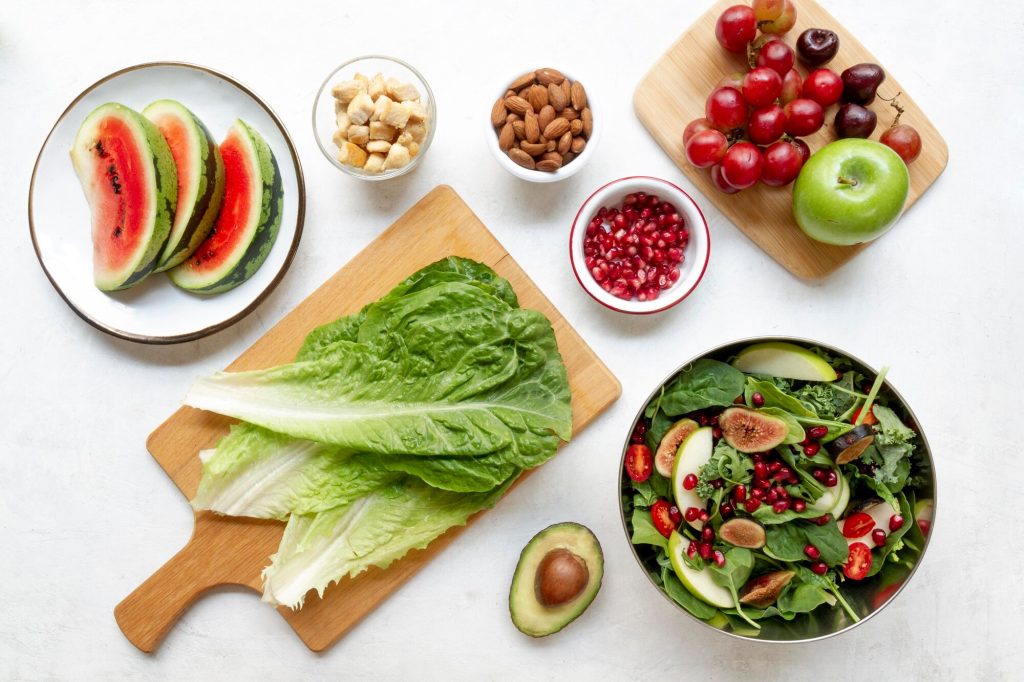
Maintaining a balanced vegan diet supports our immune system and overall well-being. A balanced vegan diet, rich in nutrient-dense plant-based foods, can provide essential nutrients that support the proper functioning of our immune system, although it does not guarantee absolute immunity from all illnesses. We can support our immune system’s defense mechanisms by including a variety of wholesome plant-based foods such as fresh fruits, vegetables, whole grains, legumes, nuts and seeds.
It’s important to note that a balanced vegan diet alone cannot provide complete immunity. Our genes also play a significant role in determining our susceptibility to illnesses. Additionally, lifestyle choices such as practicing good hygiene, getting sufficient sleep, managing stress and avoiding harmful habits contribute to our overall immune health. Therefore, it’s a combination of factors that strengthens our immune response.
To strengthen your immune system on a vegan diet, incorporate the following practices:
Soak Grains Overnight:
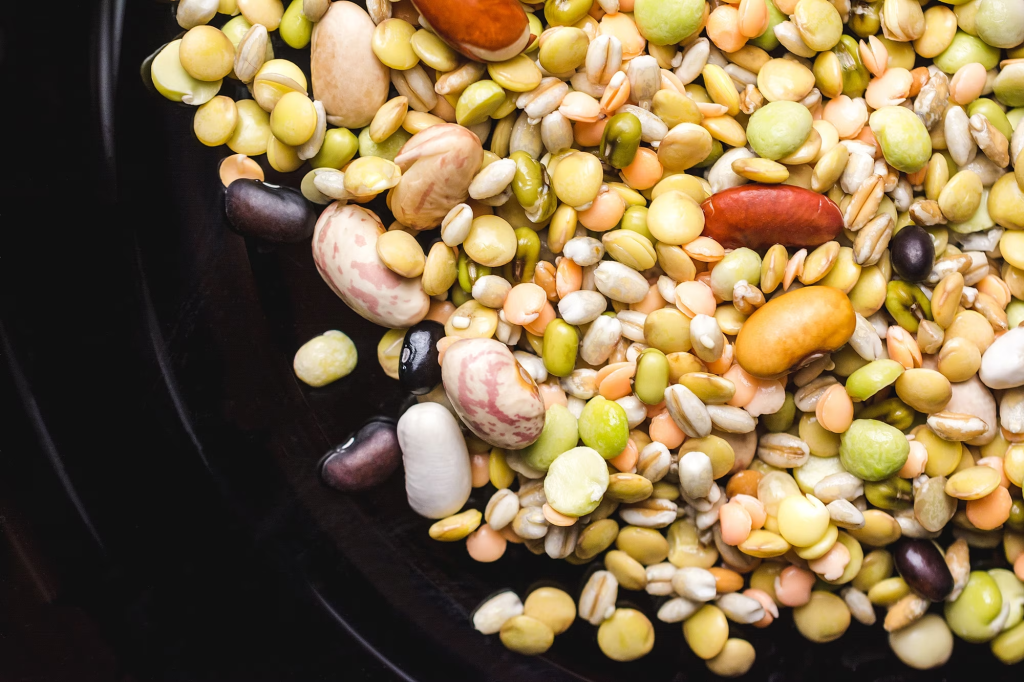
Soaking grains like quinoa, brown rice or oats in water overnight before consuming them can enhance their nutritional value. This process helps reduce anti nutrients and improve digestibility, making them a better choice.
Opt for Fresh Salads:

Prioritize fresh salads as part of your meals, loaded with various vegetables, leafy greens, legumes and other vegan ingredients. This ensures a nutrient-dense and fiber-rich option that supports immune health.
Choose Whole Foods:
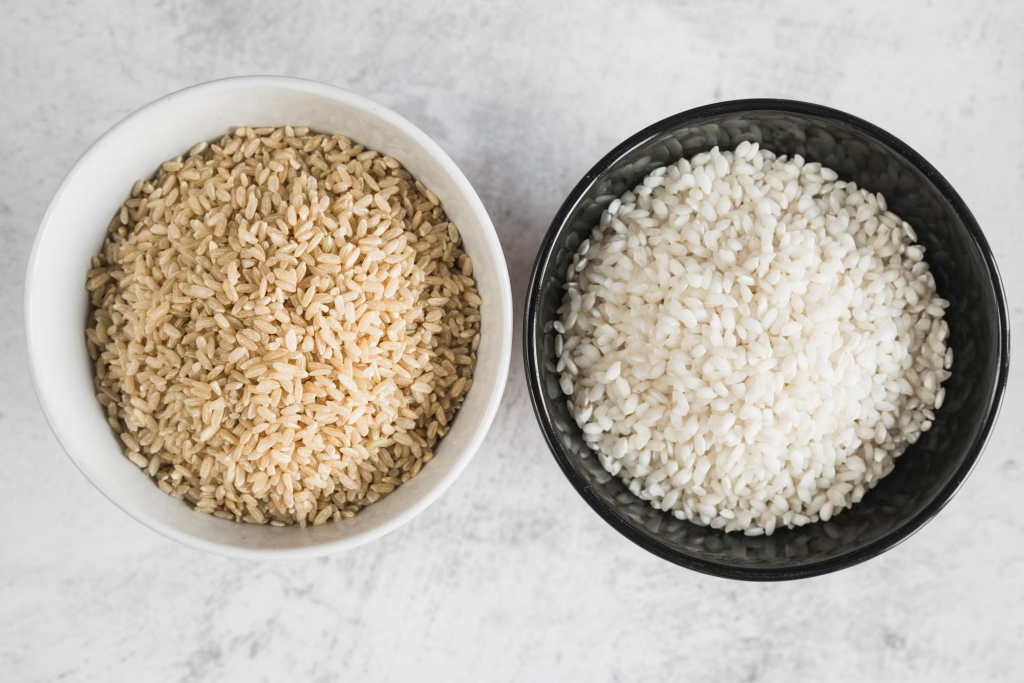
“Emphasize the consumption of whole grains like quinoa and brown rice in your vegan diet.”These foods provide complex carbohydrates, fiber and essential vitamins and minerals that support immune health.
Plant-Based Protein Sources:
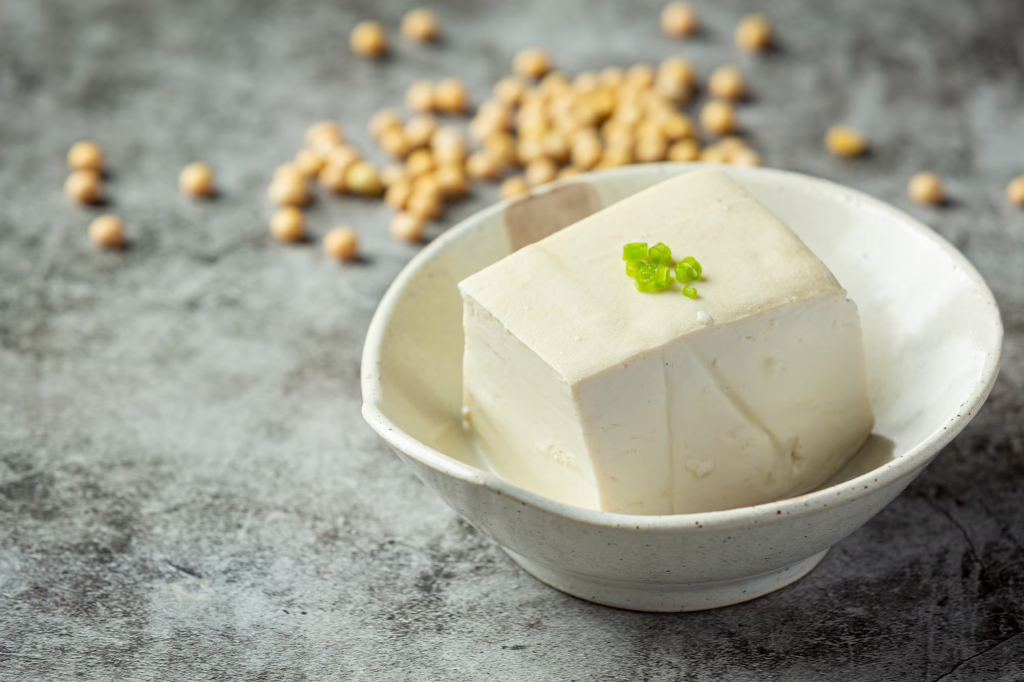
Meet your protein needs by selecting plant-based sources such as legumes (beans, lentils, chickpeas), tofu and plant-based protein powders. These foods provide essential amino acids required for immune function.
Contain Healthy Fats:
Foods rich in healthy fats such as nuts, seeds, avocados and plant-based oils. These sources of beneficial omega-3 fatty acids regulate immune responses and aid in absorbing fat-soluble vitamins.
Remember, the less processed the food, the better. Prioritize whole, minimally processed vegan foods to maximize their nutritional value and benefits for your immune system. Soaking grains directly before consumption can enhance their nutrient availability and digestibility.
Stay away from sick individuals:
Many people have misunderstandings about respiratory infections during the monsoon season. They may think that only rain causes these infections, but that’s untrue. There are other factors involved. The high humidity during the monsoon season creates a suitable environment for germs like viruses and bacteria to survive and spread through the air, which can make you sick. The weather also changes significantly, weakening your body’s ability to fight infections.
Water often collects in puddles and other places when it rains a lot. This standing water can attract mosquitoes that carry diseases, making respiratory infections more
common. Also, when it’s raining, people tend to stay indoors and if there are many people in a small space with not much fresh air, it’s easier for infections to spread from one person to another. By being aware of the factors contributing to respiratory infections during the monsoon season, you can make informed choices and adopt preventive measures to safeguard your well-being.
To reduce the risks of respiratory infections during the monsoon season, you can take several essential steps.
➤ First, practice good personal hygiene by washing your hands regularly with soap and water. You can use hand sanitizers if you don’t have access to soap and water.
➤ Wearing masks, especially in crowded or poorly ventilated places, can help prevent the spread of respiratory droplets.
➤ It’s also important to avoid close contact with people who are sick, as they may spread infectious droplets when they cough or sneeze.
➤ Keeping indoor areas clean and well-ventilated by regularly cleaning surfaces and ensuring good airflow can help eliminate harmful pathogens.
To reduce the risk of mosquito-borne illnesses, prevent water from accumulating by clearing clogged drains and ensuring proper drainage.
Taking care of your health through good nutrition, exercise, adequate sleep and stress management helps strengthen your immune system, reducing the likelihood of contracting infections during the monsoon season. If you experience respiratory symptoms or feel unwell, seek medical advice promptly for proper diagnosis, treatment and guidance on self-isolation. Understanding and implementing these preventive measures during the monsoon season can significantly reduce the chances of contracting and spreading respiratory infections.
Manage Stress: Managing stress can be confusing, so let’s break it down. First, not all stress is bad for you. Short-term stress, which lasts for a brief time, can be helpful, boosting energy and focus. But long-term stress can harm your health when it goes on for a long time. Second, there’s no one-size-fits-all way to deal with stress. Different things work for different people, so finding what works best for you is essential. And remember, managing stress doesn’t mean getting rid of it completely. Stress is a normal part of life, but finding healthy ways to handle it is critical. Finding effective ways to manage stress takes time and effort, so be patient. By learning more, trying different strategies and finding what works for you, you can handle life’s challenges better and improve your overall well-being.
Incorporating specific measures into your daily routine can be beneficial in preventing stress and its adverse effects.
➤ First, prioritize self-care activities like regular exercise, sufficient sleep and a balanced diet. Regular exercise helps your body release endorphins, which are natural mood boosters.
➤ Sleep deprivation and poor nutrition can amplify stress responses, so ensuring adequate sleep and consuming a nutritious diet is vital.
➤ Additionally, practicing relaxation techniques such as deep breathing exercises, meditation or mindfulness can help activate the body’s relaxation response and counteract the stress response.
➤ These techniques have been scientifically proven to lower cortisol levels and reduce stress.
➤ Furthermore, establishing boundaries and learning to say “no” when necessary can help manage excessive stress caused by overwhelming commitments.
Finally, building a support network of friends and family or seeking professional help can provide emotional support and guidance during challenging times.
Maintain personal hygiene: Misunderstandings surrounding hand hygiene include the effectiveness of hand sanitizers versus handwashing. Scientific research consistently shows that handwashing with soap and water is more effective at physically removing dirt, oils and pathogens. Water temperature minimizes handwashing effectiveness, with proper technique and soap being the key factors. Antibacterial soaps offer no additional benefits compared to regular soaps in germ removal and their prolonged use may contribute to antibiotic resistance.
Well-designed hand dryers can minimize germ spread if hands are appropriately dried, emphasizing the importance of thorough hand drying. Avoiding face-touching reduces the risk of infections as the face has vulnerable mucous membranes that can serve as entry points for pathogens. Understanding these scientific facts helps inform and promote proper hand hygiene practices for optimal health and disease prevention.
It’s essential to take preventive measures during the rainy season to stay healthy.
➤ Maintain good hand hygiene by washing hands frequently with soap and water.
➤ Keep clean and dry to prevent bacterial and fungal growth and protect against vector-borne diseases by using mosquito nets, wearing long-sleeved clothing and applying insect repellents.
➤ Ensure proper sanitation and use safe drinking water to prevent waterborne diseases.
➤ Practice hygiene by washing fruits and vegetables, cooking food thoroughly and avoiding street food.
➤ Avoid stagnant water to prevent mosquito breeding.
➤ Promote a vital immune system through a nourishing diet, regular exercise and sufficient rest
Exercise Regularly: Many people have wrong ideas about physical activity. For instance, some believe that training is only for losing weight, but it has many benefits beyond that. People also think that the more exercise you do, the better, but doing too much can cause injuries and weaken your immune system. While intense workouts get a lot of attention, it’s essential to know that moderate exercises like brisk walks, cycling or yoga are just as good and easier to continue. People often think practice is only for young and fit individuals, but it’s essential for everyone, regardless of age or fitness level. Lastly, there’s a mistaken belief that exercise alone can fix an unhealthy lifestyle. Still, it’s essential to have a well-rounded approach that includes a balanced diet, enough rest and managing stress for overall well-being.
To address these misunderstandings about Exercise, we can provide some helpful solutions.
➤ Firstly, let’s highlight the many ways exercise benefits our health beyond losing weight, such as improving heart health, strengthening our muscles, boosting our mental well-being and reducing the risk of diseases.
➤ Secondly, finding a balance between exercise and rest is essential to avoid overdoing it and risking injuries or weakened immune function.
➤ Thirdly, moderate activities like brisk walks, cycling or yoga are just as beneficial and more accessible to stick with than intense workouts.
➤ Fourthly, remember that exercise is for everyone, regardless of age or fitness level.
➤ Lastly, exercise alone is not enough; we should also focus on a balanced lifestyle that includes a healthy diet, enough rest and stress management.
To maintain cleanliness without relying solely on antibacterial products, here are some solutions:
➤ Make sure to prioritize regular cleaning by using soap and water to remove dirt, bacteria and germs from surfaces effectively.
➤ Avoid going overboard with antibacterial products, as not all bacteria are harmful and excessive use can lead to antibiotic-resistant strains.
➤ Promote good hygiene by washing your hands diligently with soap and water for at least 20 seconds.
➤ Follow the instructions provided when using cleaning products to ensure their effectiveness.
➤ Additionally, maintain a clean environment by tidying up regularly and paying extra attention to high-touch surfaces like doorknobs, light switches and counter tops.
Remember to clean and disinfect bathroom fixtures regularly. By implementing these suggestions, you can uphold a clean and healthy living environment without solely depending on antibacterial products.


